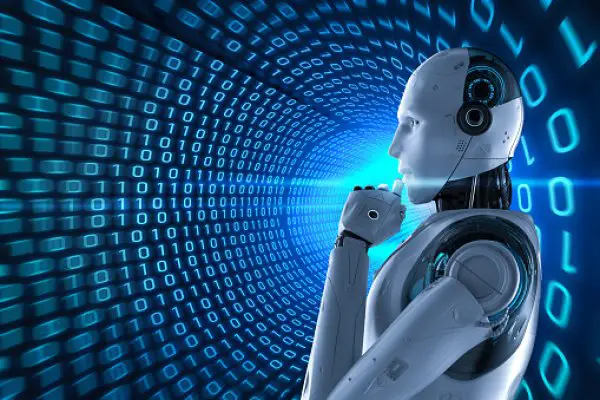Goldman Sachs economists Joseph Briggs and Devesh Kodnani have warned that AI could partially automate two-thirds of occupations in America. In their April 5 report, they wrote that new AI systems like ChatGPT could cause major upheaval in the employment markets worldwide. They added that advances in this technology might lead to workflow shifts, replacing 300 million full-time jobs with automation.
The two economists examined databases that outlined the duties involved in over 900 jobs and determined that roughly two-thirds of positions in the United States are exposed to at least some level of automation by AI as part of their report.
The economists wrote that Artificial Intelligence (AI) could replace up to half of the workload in certain occupations. They noted that generative AI, which can generate content similar to what humans create and facilitate communication between people and machines, is a breakthrough with potentially far-reaching economic effects.
Briggs and Kodnani recognize the worries about AI and job losses that may result. However, they asserted that not all jobs replaced by automation would result in layoffs. They argued that because most occupations and industries are only partly affected by automation, they are more likely to be complemented instead of substituted with AI.
The Profound Effects Of Taking Action Now
Furthermore, the authors noted that generating other jobs usually balances out job losses from automation. Most long-term employment increases are attributable to new career paths generated by technological advances.
The Goldman Sachs economists acknowledged the potential advantages of AI being widely used in business and society, including increased productivity and sales performance by businesses, improvements to manufacturing processes, and more accurate diagnoses for healthcare patients.
It is suggested that this will result in a massive boost of almost $7 trillion in worldwide GDP.
The economists say:
“While much is unknown about how generative AI will influence the world economy and society, and it will take time to play out, there are clear signs that the effects could be profound,”
A study conducted by the University of Pennsylvania and OpenAI personnel, published in a March 27 research paper (pdf), has concluded that many jobs typically held by white-collar workers in the United States can be accomplished more effectively with ChatGPT, an artificial intelligence system.
A research study determined that most (80%) of American employees could have up to 10% of their job responsibilities changed due to the emergence of big language models such as ChatGPT, and nearly a fifth (19%) have at least half of their work assignments affected.
As the competition intensifies to devise and employ increasingly sophisticated AI systems, Sundar Pichai, CEO of Google and its parent Alphabet, is among several industry insiders emphasizing the need for more caution.
Elon Musk Warns Of The Potential For Civilizational Destruction
In an interview with CBS’ “60 Minutes” on April 16, Pichai announced that AI technology was transforming multiple industries and remarked that he was speechless after seeing the outcomes of Google’s AI projects such as “Bard.” He concluded by saying that this quick advancement will affect every product from any company.
In a two-part interview with Fox News’s Tucker Carlson that aired on April 17–18, Elon Musk, the CEO of Twitter, discussed the potential dangers of advanced AI technology. He declared that it could be a risk to society and humanity.
Musk says:
“AI is more dangerous than, say, mismanaged aircraft design or production maintenance, or bad car production in the sense that it has the potential—however small one may regard that probability, but it is non-trivial—it has the potential for civilizational destruction,”
Last month, over 1,100 individuals – comprising of industry professionals and experts including Apple co-founder Steve Wozniak and Stability AI founder Emad Mostaque – signed an open letter urging all AI labs to take a break from training systems more powerful than Chat GPT-4 for at least six months. The industrialist was amongst the signatories of this letter.
In their communication, specialists cautioned that present-day AI frameworks are “now arriving at the same level as people in general errands.” They asked whether we should “computerize all occupations, including those which bring fulfillment.”
The letter expressed that it would not be prudent to leave the decision of creating artificial intelligence with superior capacities to ours up to tech executives who the people did not elect. It also warned against the potential risk of losing control over our society if such a development were to occur.
It is important for policymakers and business leaders to consider the impacts of AI on the workforce carefully and to address the challenges that arise proactively. By investing in retraining programs, promoting the development of new industries, and supporting workers impacted by automation, we can work towards a future where the benefits of AI are shared more widely and equitably. Ultimately, the success of AI as a tool for improving our lives will depend on our ability to manage its impact on the workforce thoughtfully and proactively.
Source: www.theepochtimes.com



